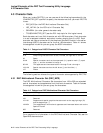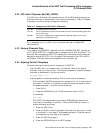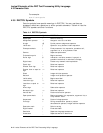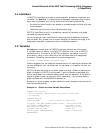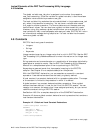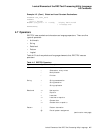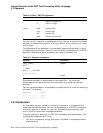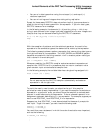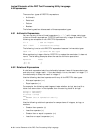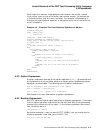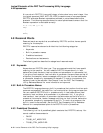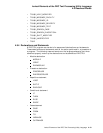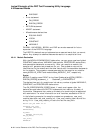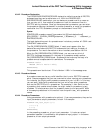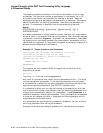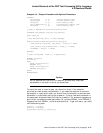Lexical Elements of the DEC Text Processing Utility Language
4.8 Expressions
There are four types of DECTPU expressions:
• Arithmetic
• Relational
• Pattern
• Boolean
The following sections discuss each of these expression types.
4.8.1 Arithmetic Expressions
You can use any of the arithmetic operators (+, –, *, / ) with integer data types
to form arithmetic expressions. DECTPU performs only integer arithmetic. The
following are examples of valid DECTPU expressions:
12 + 4 ! adds two integers
"abc" + "def" ! concatenates two strings
The following is not a valid DECTPU expression because it mixes data types:
"abc" + 12 ! you cannot mix data types
When performing integer division, DECTPU truncates the remainder; it does not
round. The following examples show the results of division operations:
Expression Result
39 / 10 3
-39 / 10 -3
4.8.2 Relational Expressions
A relational expression tests the relationship between items of the same data type
and returns an integer result. If the relationship is true, the result is integer 1; if
the relationship is false, the result is integer 0.
Use the following relational operators with any of the DECTPU data types:
• Not equal operator (<>)
• Equal operator ( = )
For example, the following code fragment tests whether string1 starts with a
letter that occurs later in the alphabet than the starting letter of string2:
string1 := "gastropod";
string2 := "arachnid";
IF string1 > string2
THEN
MESSAGE ("Out of alphabetical order ");
ENDIF;
Use the following relational operators for comparisons of integers, strings, or
markers:
• Greater than operator (>)
• Less than operator (<)
• Greater than or equal to operator (>=)
• Less than or equal to operator (<=)
4–10 Lexical Elements of the DEC Text Processing Utility Language



